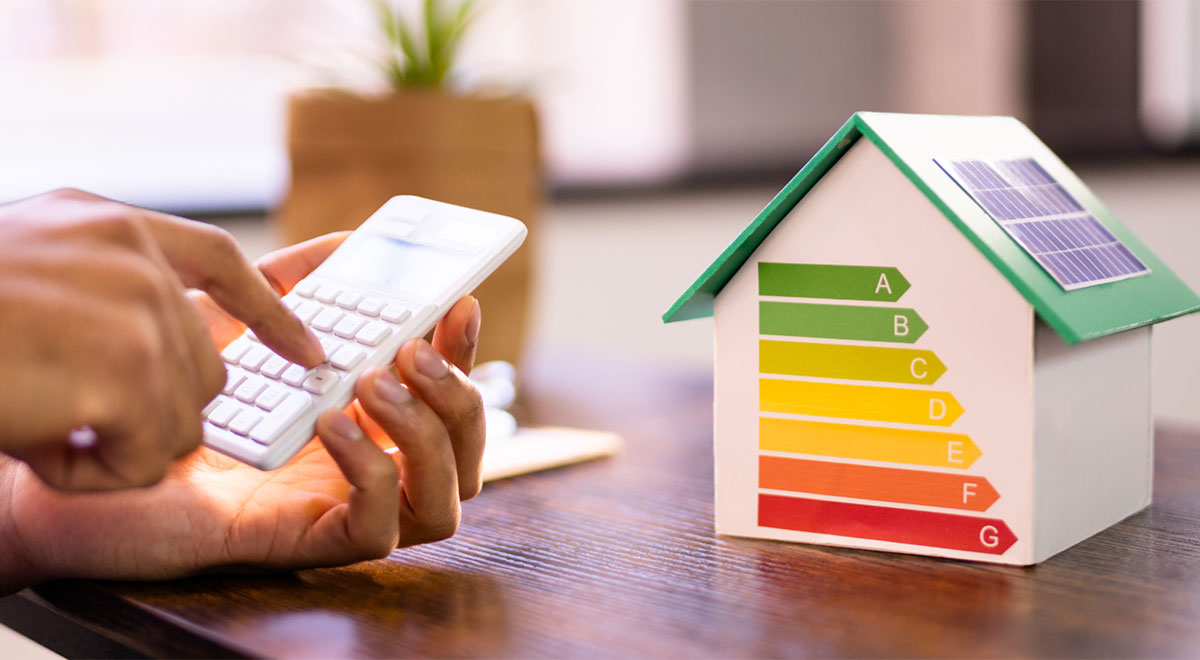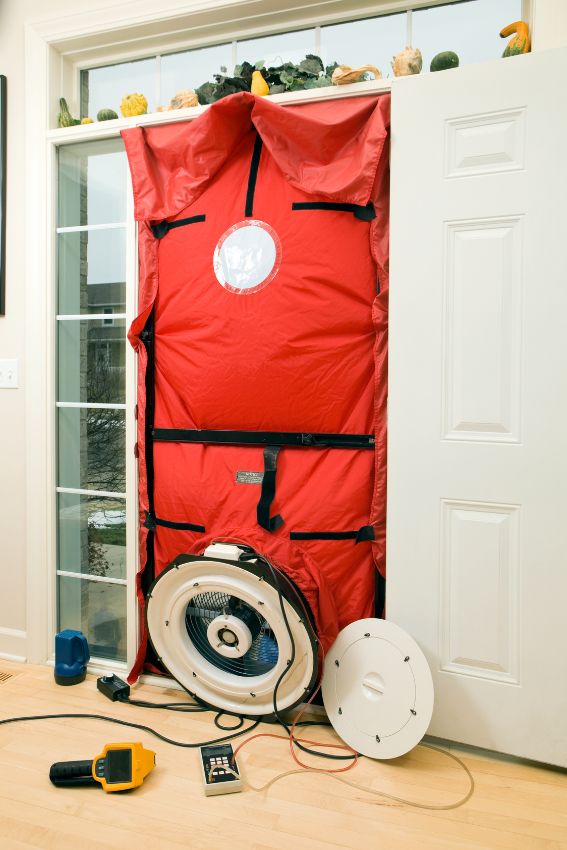Top 10 reasons why energy testing south carolina is a smart investment in comfort
Top 10 reasons why energy testing south carolina is a smart investment in comfort
Blog Article
Just How Power Testing Can Result In Much More Sustainable Living Solutions
Energy screening is a vital tool for promoting sustainable living. It uncovers ineffectiveness in energy usage within homes. Techniques such as power audits and thermal imaging provide beneficial understandings. Home owners can recognize areas requiring renovation, from insulation to devices. Dealing with these ineffectiveness can lead to substantial energy financial savings. Yet, many stay unaware of the complete possibility of these practices. What steps can individuals take to boost their homes and contribute to a much more sustainable future?
Understanding Power Testing and Its Value

Common Approaches of Energy Screening
There are numerous common approaches of energy testing that homeowners can use to analyze their energy performance (energy testing north carolina). One widely utilized strategy is the blower door test, which determines the air leak in a home. By pressurizing the building, it determines breezy locations that may require sealing. One more technique is thermal imaging, where infrared electronic cameras detect temperature variants in ceilings, wall surfaces, and windows, highlighting insulation issues.Energy audits are also prominent, including a comprehensive evaluation of a home's energy usage, frequently carried out by a professional. These audits may consist of reviewing home heating and cooling systems, home appliances, and overall energy intake patterns. Additionally, smart energy meters can provide real-time information on energy usage, helping property owners understand their usage routines. With each other, these techniques offer important insights, making it possible for home owners to make enlightened choices concerning boosting their power performance and advertising sustainable living practices
Identifying Power Inefficiencies in your house
Determining energy ineffectiveness in a home is important for home owners intending to decrease energy usage and reduced energy costs. Common areas to analyze consist of insulation, home windows, and appliances. Poor insulation can cause significant warmth loss in winter season and undesirable warm gain in summertime, making heating & cooling systems function harder. Breezy windows add similarly, allowing conditioned air to escape and enhancing power demand.Additionally, outdated appliances often eat extra power than their modern equivalents, even more exacerbating inefficiency. Home owners must also take into consideration the illumination system, as incandescent bulbs utilize more power compared to LED options.Regular maintenance of a/c systems is vital, as overlook can bring about decreased effectiveness. By systematically examining these aspects of a home, home owners can pinpoint locations requiring enhancement. Addressing these inefficiencies not just enhances comfort but also adds to a much more lasting way of living by lessening power waste.
The Role of Power Audits in Sustainability
Power audits play a vital function in advertising sustainability by giving homeowners with a substantial analysis of their power use. These evaluations identify areas where power is thrown away, allowing individuals to understand their intake patterns and make notified decisions for renovation. By exposing inadequacies in heating, air conditioning, insulation, and appliances, power audits act as a critical tool for decreasing overall energy demand.Furthermore, they help with the application of energy-saving procedures, such as upgrading insulation or setting up energy-efficient illumination, which can significantly decrease energy costs and lower carbon impacts. The understandings gained from a power audit empower house owners to focus on sustainability in their living environments. As more households take part in this procedure, the cumulative impact adds to broader ecological objectives, cultivating a culture of power consciousness and responsibility. Eventually, power audits are foundational to progressing sustainable living options, benefitting both specific homeowners and the environment at huge.
Ingenious Technologies for Power Effectiveness
As homeowners significantly look for to enhance their power performance, ingenious technologies are arising to sustain these undertakings. Smart home systems, equipped with sensors and automation, allow property owners to manage and monitor power consumption in real-time. These systems can change cooling, home heating, and lighting based upon tenancy, therefore minimizing waste.In enhancement, innovations in energy-efficient home appliances have actually made substantial strides. Instruments such as ENERGY STAR-rated fridges and washing equipments eat much less energy while offering optimal efficiency. The combination of sustainable power resources, like solar panels and wind generators, makes it possible for property owners to create their own power, lowering dependence on nonrenewable resources.Building materials have also developed, with choices like shielded energy-efficient home windows and concrete kinds adding to reduced energy loss. Together, these cutting-edge technologies not just enhance energy efficiency however likewise foster a more lasting living atmosphere, empowering property owners to make impactful choices in their power usage methods.
Long-Term Perks of Sustainable Living
While many might see sustainable living as a fad, its long-lasting benefits extend much past mere way of life choices. Welcoming lasting techniques causes significant decreases in carbon footprints, adding to a much healthier world. By decreasing resource intake and prioritizing renewable energy, neighborhoods and people can experience reduced utility prices. This monetary relief can boost financial stability with time, enabling reinvestment in various other important areas.Furthermore, lasting living fosters more powerful neighborhood connections as people team up on local efforts, advertising social cohesion. Wellness benefits likewise arise, as reduced contamination and increased eco-friendly rooms improve air high quality and total well-being. Furthermore, future generations will certainly acquire an extra sustainable atmosphere, guaranteeing the accessibility of all-natural resources and biodiversity. Eventually, the lasting benefits read what he said of sustainable living include ecological, economic, and social dimensions, providing an engaging instance for individuals to embrace and maintain these methods for the greater good.
Actions to Apply Energy-Saving Solutions
Executing energy-saving options starts with a complete assessment of energy consumption patterns to determine locations for enhancement. Once these patterns are comprehended, people can pinpoint energy-efficient upgrades that straighten with their demands. Constant surveillance and changes to power use warranty that these remedies continue to be reliable over time.
Examine Power Usage Patterns

Assessing energy intake patterns is an essential step towards recognizing efficient energy-saving options. By methodically tracking use across various times and people, appliances and companies can identify locations of too much consumption. This analysis can disclose peak use periods, making it possible for a much better understanding of when energy demands are highest possible. Furthermore, analyzing patterns permits comparisons in between comparable home appliances, highlighting those that run less successfully. Data collection techniques, such as smart meters and power audits, offer valuable insights into overall energy use. Recognizing fads over time can assist in recognizing seasonal variants and changes in intake behaviors. This fundamental expertise is vital for establishing targeted techniques that promote lasting living and decrease overall energy expense.
Identify Energy-saving Upgrades
To efficiently implement energy-saving services, identifying energy-efficient upgrades is vital for both businesses and homeowners. This procedure starts with a comprehensive assessment of existing systems, including heating and cooling systems, insulation, and appliances. Upgrades might include setting up ENERGY STAR-rated appliances, enhancing insulation, and making use of energy-efficient home windows. Furthermore, executing wise thermostats can enhance heating and cooling timetables, minimizing power consumption. Shifting to LED illumination is another effective measure, as it takes in significantly less energy than conventional light bulbs. Furthermore, discovering renewable power choices, such as photovoltaic panels, This Site can supply long-lasting savings. Inevitably, prioritizing these upgrades not just adds to decreased power costs yet likewise cultivates a commitment to sustainability, profiting both the atmosphere and future generations.
Monitor and Change Usage
Monitoring and adjusting energy usage is important for optimizing the benefits of energy-saving options. Regularly examining power intake patterns enables people and organizations to determine locations for renovation. By using smart meters and power monitoring systems, individuals can track real-time usage and detect any abnormalities that might suggest inefficiencies.Adjusting behavior, such as shutting off lights and disconnecting extra tools, better enhances energy cost savings. In addition, organizing appliances to operate during off-peak hours can considerably lower costs.Conducting routine power audits warranties that implemented solutions remain effective over time. By actively taking part in monitoring and adjusting methods, individuals can enhance their energy effectiveness, add to sustainability efforts, and ultimately reduce their environmental impact.
Frequently Asked Questions
Exactly how Much Does a Power Audit Commonly Expense?

Can Energy Testing Help Reduce Energy Costs?
Power screening can substantially reduce energy costs by recognizing ineffectiveness in a home's energy use. By dealing with these issues, property owners frequently experience lower consumption and prices, leading to even more affordable power administration and enhanced economic cost savings.
What Credentials Should a Power Auditor Have?
An energy auditor should have pertinent accreditations, such as RESNET or BPI, together with experience in building sciences. energy testing taylors sc. Strong logical abilities and understanding of energy performance methods are important for conducting exact assessments and providing reliable suggestions
Are There Federal Government Rewards for Power Effectiveness Upgrades?
Government rewards for power efficiency upgrades commonly exist, consisting of tax obligation credit scores, discounts, click this and gives. These programs intend to motivate homeowners and services to invest in energy-saving modern technologies, eventually advertising ecological sustainability and minimizing overall energy usage.
Just how Frequently Should I Conduct Power Screening in My Home?
Energy testing need to preferably be performed each year to identify ineffectiveness. House owners might take into consideration more regular evaluations after significant remodellings, adjustments in energy costs, or if unusual drafts or temperature level variations are seen within the home. Power testing makes it possible for the evaluation of just how well a home utilizes energy, pinpointing areas where waste occurs. Identifying power inefficiencies in a home is necessary for home owners intending to lower power intake and reduced utility bills. Power audits play an important role in promoting sustainability by supplying house owners with a substantial evaluation of their power use. By disclosing inefficiencies in home heating, cooling, insulation, and home appliances, power audits serve as a vital device for reducing overall energy demand.Furthermore, they assist in the execution of energy-saving procedures, such as upgrading insulation or mounting energy-efficient illumination, which can significantly lower energy expenses and decrease carbon impacts. Energy testing can significantly decrease energy bills by recognizing ineffectiveness in a home's energy usage.
Report this page